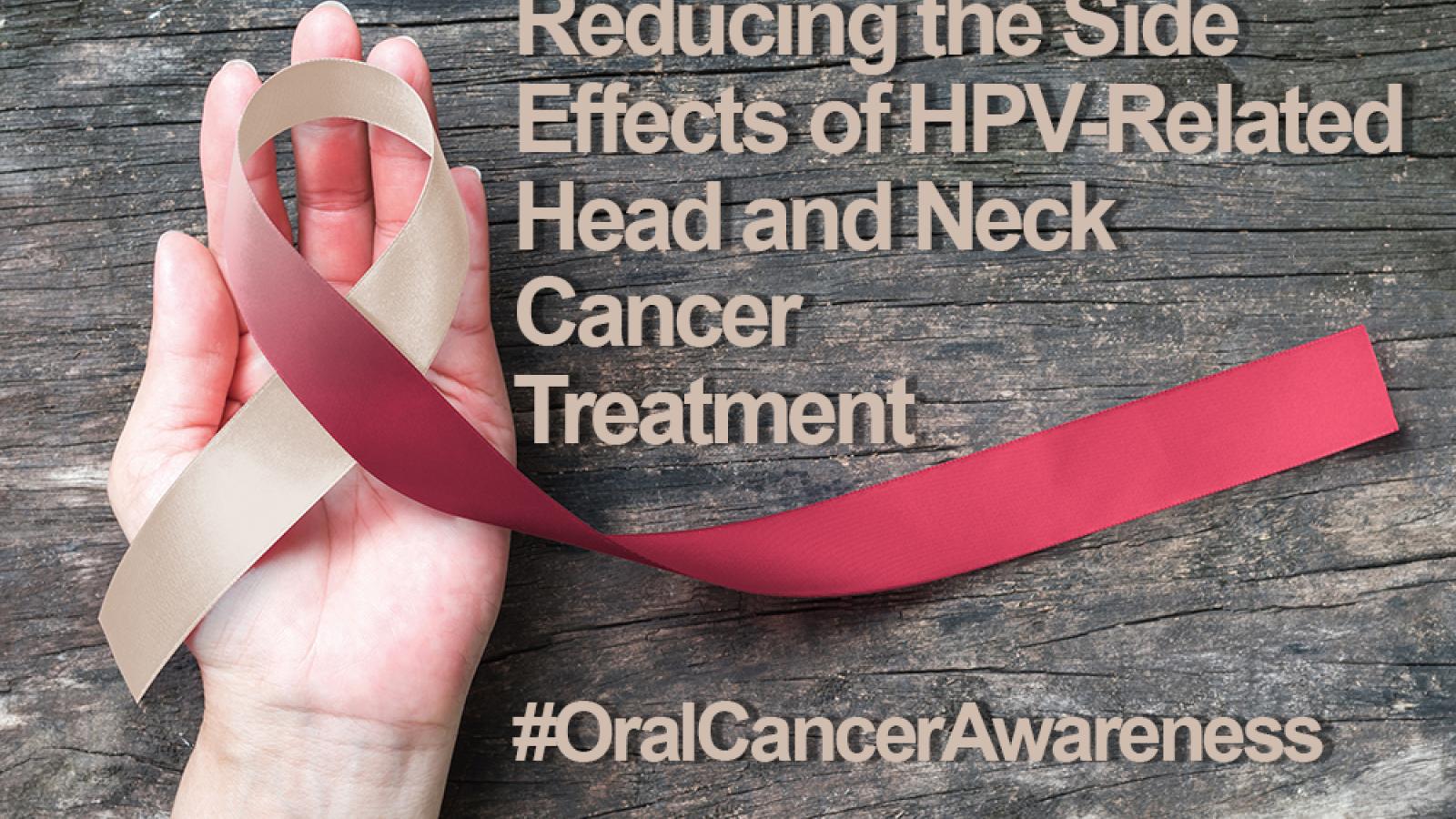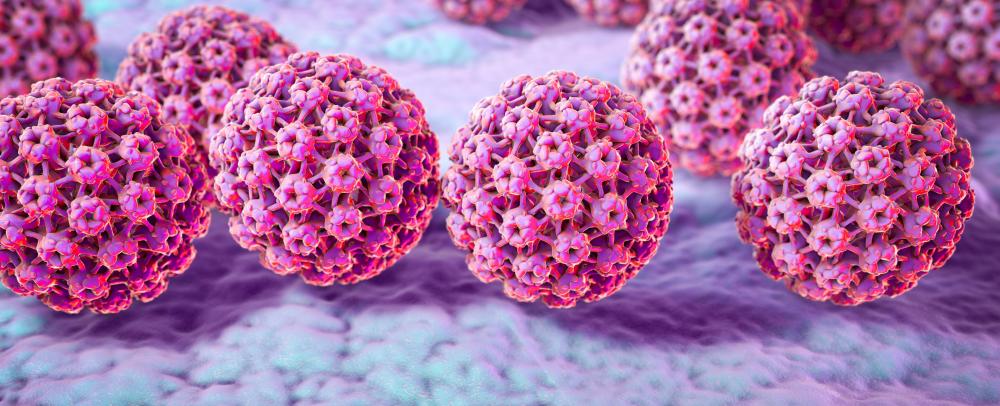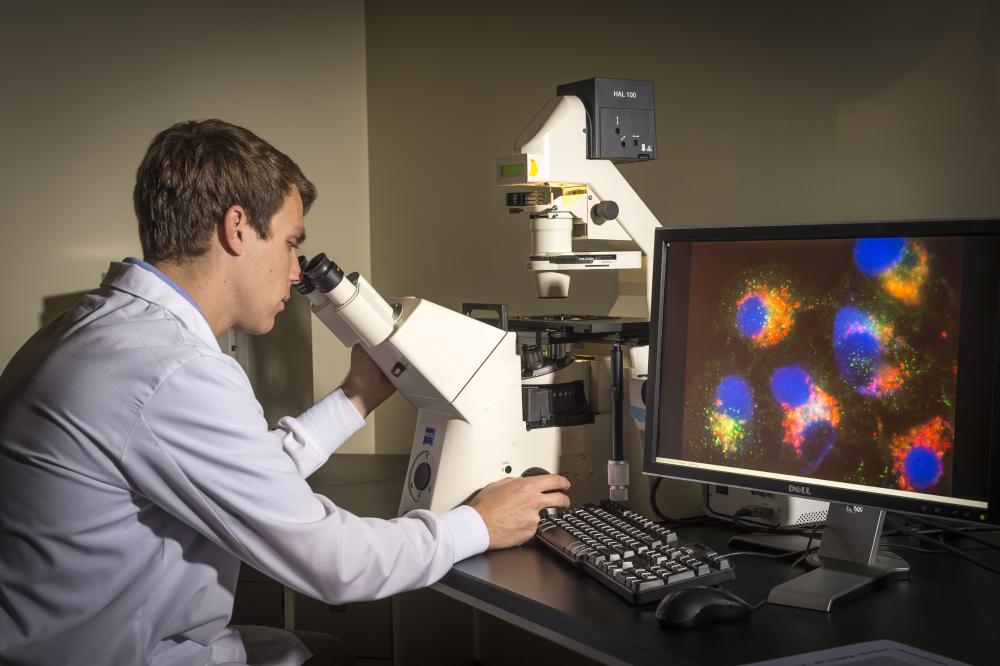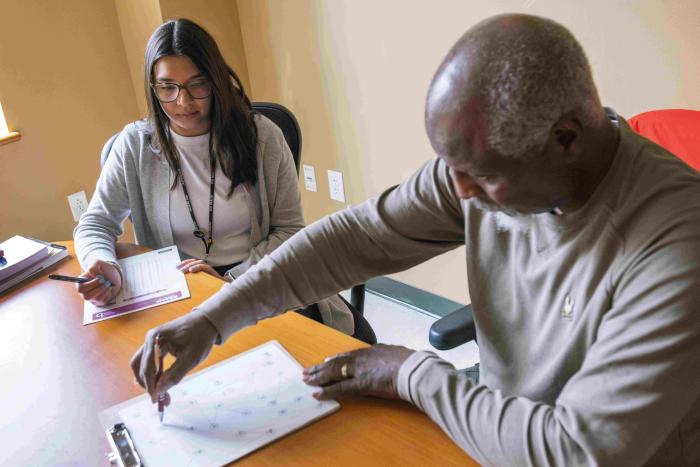
Finding a Diagnosis to Reduce Side Effects of HPV-Related Cancer Treatment
April is Oral Cancer Awareness Month, so we’re taking the opportunity to highlight recent research on the MCV Campus examining human papillomavirus (HPV), which is contributing to a rise in the frequency of oropharyngeal cancer (cancer located in the base of the tongue or tonsillar region).
The research is important because while survival rates for patients with HPV-related oropharyngeal cancer are high, those who survive will often go on to contend with severe side effects as a result of the radiation therapy they’ve received. They might experience problems digesting or swallowing due to permanently damaged salivary and thyroid glands, for example, or they might suffer bone death in their jaw, which can cause it to become brittle and break.
Hoping to find relief for future survivors, researchers at the VCU School of Dentistry and VCU Massey Cancer Center began asking, “What if there was a way to treat people less aggressively to avoid the side effects, but still achieve remission?”

The researchers — Iain M. Morgan, Ph.D., director of the School of Dentistry’s Philips Institute for Oral Health Research and member of Massey, and Brad Windle, Ph.D., associate professor in the Philips Institute and also a member of Massey — believe they’ve taken a major step toward finding the solution for future survivors.
That step comes through being able to distinguish patients who have a high chance of survival from those who have a low chance at survival, which is something that to this point, clinicians couldn’t accomplish with high accuracy.
Determining chances of survival in individual patients is important because those with a low chance of survival should not be involved in trials that test less aggressive treatments (because they need the strongest treatment available for the best chance at survival).
Once researchers and physicians know which patients have a positive enough diagnosis to participate in clinical trials involving less aggressive treatments, they can begin undertaking research to find the best ways to avoid the severe side effects within that population.
Drs. Morgan and Windle found the path toward accurately diagnosing the severity of HPV-related oropharyngeal cancer when they were exploring data and samples from a nationwide collaborative project that collected and genetically sequenced a host of cancers (The Cancer Genome Atlas project).

In examining HPV-related oropharyngeal cancer samples, their team was able to identify a category of HPV that had previously been miscategorized. This discovery provided important information and understanding that was needed to diagnose which patients had better chances of survival. As a result of being able to make this diagnosis, researchers, clinicians and patients can be better informed — based on personal needs and prognoses — when exploring different treatment options.
In other words, researchers can use this new information to begin trails of less aggressive treatment options and patients can choose to pursue options that could reduce the side effects they often confront after treatment.
In addition, the team’s discovery has provided information leading to the development of a diagnostic tool for clinicians to use in making the vital determination that will help set patients on their best path for treatment.
The scientific journey that Drs. Morgan and Windle took to make their discoveries is highlighted in more detail in our inaugural issue of NEXT magazine. NEXT explores the incredible innovations in patient care, research and education occurring on the MCV Campus at VCU Health. To read more about this and other stories of discovery, click here and read NEXT.



